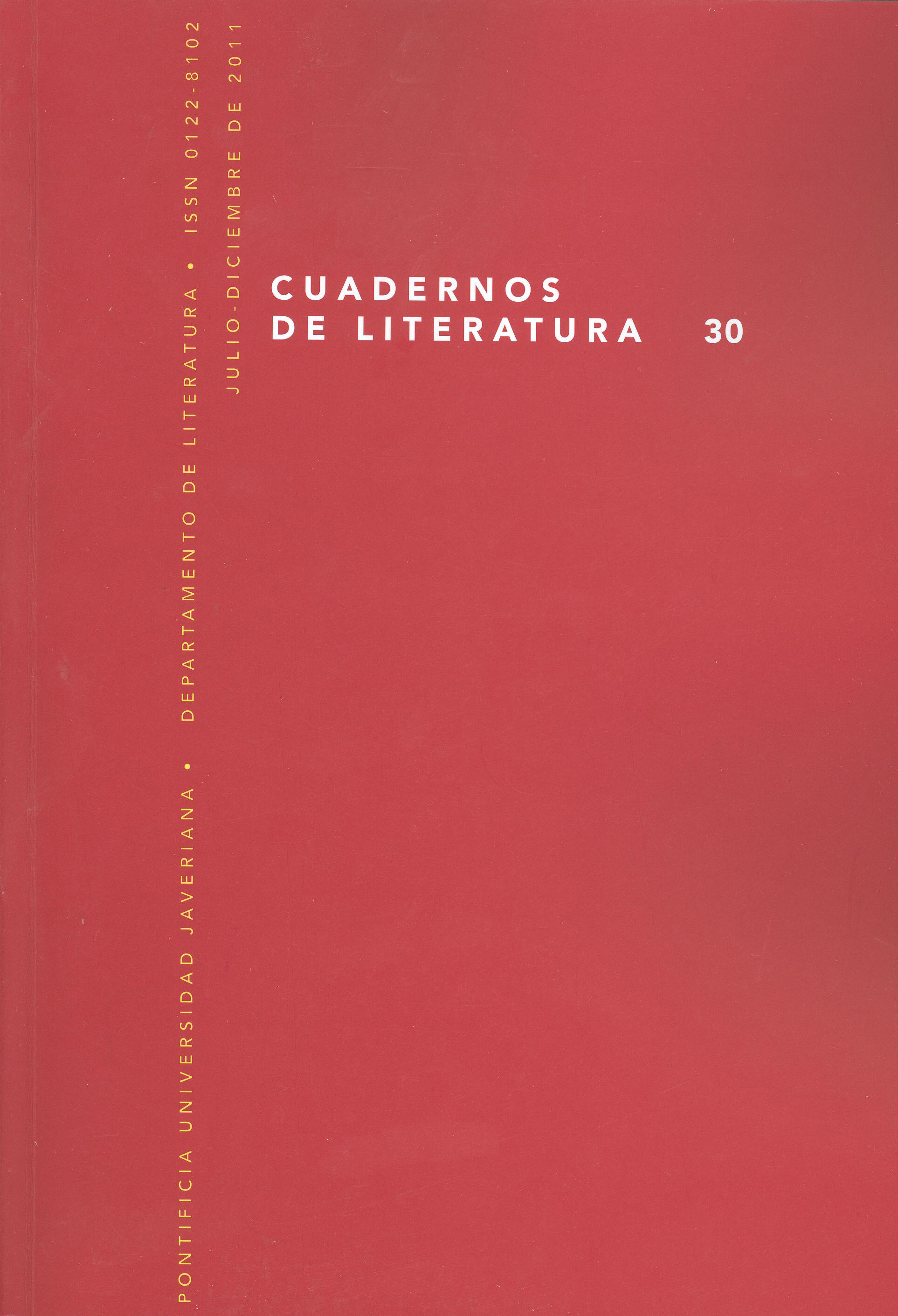Abstract
En este ensayo sostengo que el acto de leer Elogio de la creolidad requiere una reconstrucción de un contexto definido por historias literarias y teóricas a cuyo desarrollo contribuyó este manifiesto, pero las cuales, a su vez, permitieron una exploración profunda del sentido del concepto contenido en este manifiesto. Así, del mismo modo que Creolidad creó conciencia de una identidad antillana en ciernes, el discurso que intentaba describirla debe percibirse también como un proceso de lectura plural constante, que empieza “teóricamente” con Elogio de la creolidad, pero ni se limita ni termina con él. También sostengo aquí que el examen transformacional y generacional de estas teorías por parte de los tres creolistas no fue ni totalizador, ni exhaustivo, ni imparcial, ni falto de ambivalencia y exceso respecto al asunto de la lengua creole, la literatura y la búsqueda de la Palabra verdadera (“la Parole vraie”).Cuadernos de Literatura is registered under a Creative Commons Attribution 4.0 International Public License. Thus, this work may be reproduced, distributed, and publicly shared in digital format, as long as the names of the authors and Pontificia Universidad Javeriana are acknowledged. Others are allowed to quote, adapt, transform, auto-archive, republish, and create based on this material, for any purpose (even commercial ones), provided the authorship is duly acknowledged, a link to the original work is provided, and it is specified if changes have been made. Pontificia Universidad Javeriana does not hold the rights of published works and the authors are solely responsible for the contents of their works; they keep the moral, intellectual, privacy, and publicity rights.
Approving the intervention of the work (review, copy-editing, translation, layout) and the following outreach, are granted through an use license and not through an assignment of rights. This means the journal and Pontificia Universidad Javeriana cannot be held responsible for any ethical malpractice by the authors. As a consequence of the protection granted by the use license, the journal is not required to publish recantations or modify information already published, unless the errata stems from the editorial management process. Publishing contents in this journal does not generate royalties for contributors.


